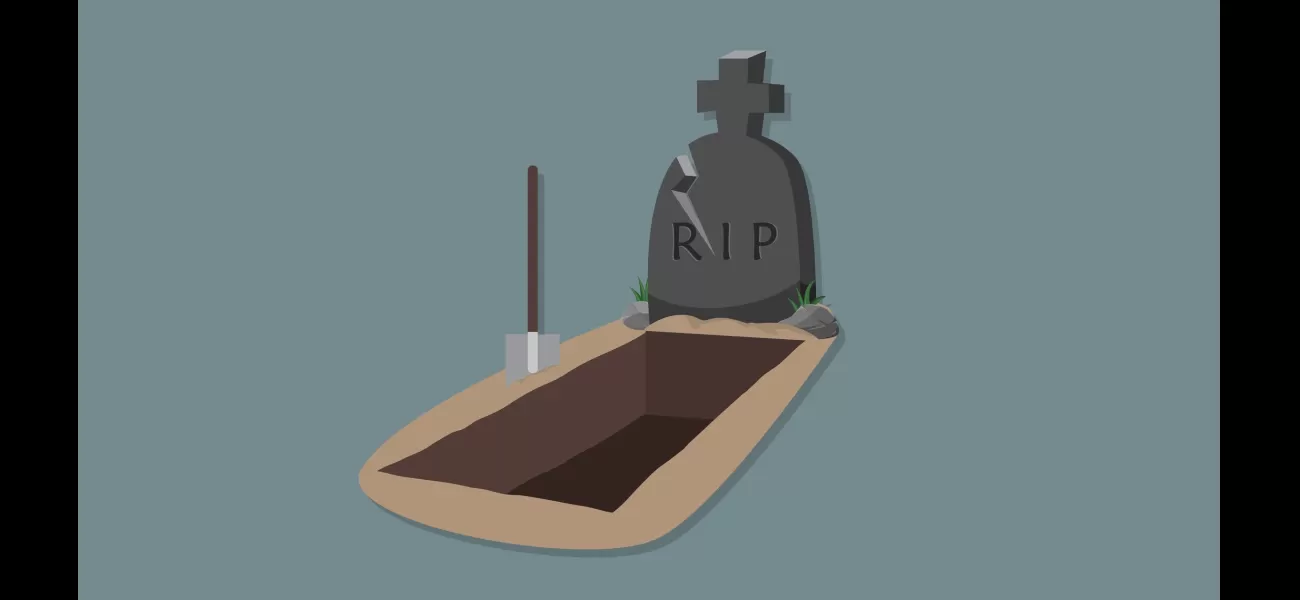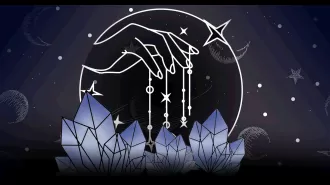The world's obsession with remakes and repetition signals the death of new ideas.
Why are we so fixated on remakes and repetitive TikTok videos?
January 28th 2024.

Content feels a bit like Groundhog Day right now. Everywhere you look, things are starting to feel a little repetitive. It seems like every week, there's an announcement of a beloved TV show or film getting remade. From planned reboots of The US Office and Fawlty Towers to all the Disney live-action adaptations and the upcoming Mean Girls movie in 2024, it's clear that Hollywood has hit a bit of a stalemate in terms of originality.
Don't get me wrong, new ideas are definitely coming through, but it's hard not to notice the focus on rehashing old ones rather than giving fresh new ideas the time they deserve. We were all promised a "creative renaissance" after the pandemic, but it seems like we're still waiting for it to come to fruition.
This lack of originality is not limited to just the entertainment industry, it's also evident closer to home. A simple scroll on TikTok or Instagram will reveal the same formats popping up again and again. From TikTok dances and pranks to an obsession with road-testing "theories", it feels like we're being served a constant stream of duplicate ideas that we've already seen before.
But it wasn't always like this. If we go back 10-15 years, one standout creative video on Vine was a cultural moment on its own. People would quote it, but they wouldn't try to recreate it. Now, it's a different landscape. The goal is no longer to come up with original content ideas, but rather to simply photocopy existing formats and ride on the coattails of others' creativity. In fact, most platforms even reward this type of behavior.
So, what's causing this cultural originality standstill? According to behavioral experts, there are two main factors at play: technology and psychology. Stefan Kelly, a senior behavioral analyst at market research group Canvas8, explains that technology, especially algorithms, is shaping our cultural consumption. These systems are designed to optimize for engagement, often favoring content that is already popular or proven to be successful. Essentially, when technology quantifies something, it tends to prioritize what the most people will recognize. This is why many people feel like there's less original content on TikTok now.
But it's not just technology, the main audiences for these platforms also play a role. Younger generations have grown up with more algorithmic technology, so they don't know any different. They are attracted to things they know, especially when there are infinite choices. For example, on Spotify, you can listen to any song in the world, making it harder to discover new music compared to when we had the radio to rely on. We now have technology serving us in a different way.
However, this type of behavior is not limited to a specific age group. As Dr. Richard Courtney, who specializes in cultural identity and behavior at UEL, points out, repetition is not going anywhere anytime soon. He explains that repetition provides meaning to many people, and constant invention and originality can be seen as cumbersome and require more effort than simple light relief or entertainment. Our psychological makeup may even prefer repetition for the sense of security it can provide.
Dr. Richard compares this to why we listen to the same songs and albums over and over again. We don't constantly need new ideas, sometimes we crave the familiar. He adds, "People no longer desire the novel or original, but seek solace in reliving the past to create a sense of familiarity in a fast-changing world."
Dr. James Walters from the University of Birmingham also believes that repetition has always been a way for cultures to share artworks and experiences with each other. He explains that fairy tales have evolved over time through repetitions and that parents pass down stories they heard as children to their own children. He also wonders if this could be related to a generational churn, where as people grow up and have their own kids, they return to the nostalgic products of their youth. This can create a folk tradition of remaking and retelling, which brings people together but is also exploited by corporations.
Ultimately, perhaps originality in culture is just a myth, and innovation goes hand in hand with repetition. So while our TikTok or Instagram feeds may feel a bit like Groundhog Day, it's important to remember that we've been revisiting and reviving old ideas in various forms for decades. There's clearly a cultural craving for repetition and familiarity at all ages, so why wouldn't we feed it?
Don't get me wrong, new ideas are definitely coming through, but it's hard not to notice the focus on rehashing old ones rather than giving fresh new ideas the time they deserve. We were all promised a "creative renaissance" after the pandemic, but it seems like we're still waiting for it to come to fruition.
This lack of originality is not limited to just the entertainment industry, it's also evident closer to home. A simple scroll on TikTok or Instagram will reveal the same formats popping up again and again. From TikTok dances and pranks to an obsession with road-testing "theories", it feels like we're being served a constant stream of duplicate ideas that we've already seen before.
But it wasn't always like this. If we go back 10-15 years, one standout creative video on Vine was a cultural moment on its own. People would quote it, but they wouldn't try to recreate it. Now, it's a different landscape. The goal is no longer to come up with original content ideas, but rather to simply photocopy existing formats and ride on the coattails of others' creativity. In fact, most platforms even reward this type of behavior.
So, what's causing this cultural originality standstill? According to behavioral experts, there are two main factors at play: technology and psychology. Stefan Kelly, a senior behavioral analyst at market research group Canvas8, explains that technology, especially algorithms, is shaping our cultural consumption. These systems are designed to optimize for engagement, often favoring content that is already popular or proven to be successful. Essentially, when technology quantifies something, it tends to prioritize what the most people will recognize. This is why many people feel like there's less original content on TikTok now.
But it's not just technology, the main audiences for these platforms also play a role. Younger generations have grown up with more algorithmic technology, so they don't know any different. They are attracted to things they know, especially when there are infinite choices. For example, on Spotify, you can listen to any song in the world, making it harder to discover new music compared to when we had the radio to rely on. We now have technology serving us in a different way.
However, this type of behavior is not limited to a specific age group. As Dr. Richard Courtney, who specializes in cultural identity and behavior at UEL, points out, repetition is not going anywhere anytime soon. He explains that repetition provides meaning to many people, and constant invention and originality can be seen as cumbersome and require more effort than simple light relief or entertainment. Our psychological makeup may even prefer repetition for the sense of security it can provide.
Dr. Richard compares this to why we listen to the same songs and albums over and over again. We don't constantly need new ideas, sometimes we crave the familiar. He adds, "People no longer desire the novel or original, but seek solace in reliving the past to create a sense of familiarity in a fast-changing world."
Dr. James Walters from the University of Birmingham also believes that repetition has always been a way for cultures to share artworks and experiences with each other. He explains that fairy tales have evolved over time through repetitions and that parents pass down stories they heard as children to their own children. He also wonders if this could be related to a generational churn, where as people grow up and have their own kids, they return to the nostalgic products of their youth. This can create a folk tradition of remaking and retelling, which brings people together but is also exploited by corporations.
Ultimately, perhaps originality in culture is just a myth, and innovation goes hand in hand with repetition. So while our TikTok or Instagram feeds may feel a bit like Groundhog Day, it's important to remember that we've been revisiting and reviving old ideas in various forms for decades. There's clearly a cultural craving for repetition and familiarity at all ages, so why wouldn't we feed it?
[This article has been trending online recently and has been generated with AI. Your feed is customized.]
[Generative AI is experimental.]
0
0
Submit Comment





